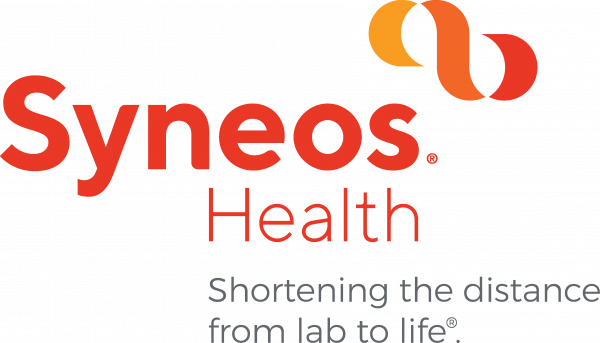ASCO 2020 round-up: Virtual conference still delivers the drama

ASCO may have been virtual this year because of the COVID-19 pandemic, but there were still some show-stopping moments, reports Richard Staines. This time of year oncologists from all over the world descend upon Chicago’s McCormick Place Convention Center, fighting their way through endless queues to grab expensive cups of coffee and burgers, before taking their place in a darkened hall to scrutinise endless graphs and charts as doctors discuss clinical results from the latest drugs and therapies. It’s a place that can make or break a drug, as the American Society of Clinical Oncology’s experts run the rule over efficacy and safety and ask whether the results could translate into meaningful improvements for patients. However, this year the ASCO drama took place in living rooms and home workspaces across the world instead, as the event went virtual to prevent the spread of COVID-19. “The theme ‘Unite and Conquer’ took on new meaning,” commented Patrick Nealon, Syneos Health’s executive vice president and general manager, oncology. “Despite not physically being together, it was clear that the community has never been more united in reducing the global burden of cancer – all guided by the patient at the centre. ASCO president Howard A. Burris put it best when he reminded attendees that no matter our locations ‘connecting and collaborating’ is how we’ll solve the complex problems of cancer care.” The event kicked off on Friday 29th May with Amgen’s data from its next-generation proteasome inhibitor Kyprolis (carfilzomib) in newly-diagnosed multiple myeloma – and regrettably for the big US pharma this was one drug that failed to meet expectations. ASCO also chose to discuss the Kyprolis data in its plenary session as the meeting closed, as oncologists had high hopes this could set new standards as a first line therapy in this still-incurable disease. But unfortunately for Amgen and the doctors and patients hoping for an improvement, a combination therapy adding Kyprolis to a standard “backbone” therapy, failed to significantly improve on the standard therapy based around Takeda’s Velcade (bortezomib) in the ENDURANCE trial.
“Data confirmed that the changes to health services as a result of COVID-19 are having an impact on cancer care”
There was little gap between the two survival curves and the two treatment groups – which nearly always spells failure as oncologists are by nature conservative and want to feel confident that a new therapy will improve patients’ survival chances. The first day of ASCO also took some time to consider the impact of COVID-19 on patients: there was data confirming that the changes to health services as a result of the pandemic are having an impact on cancer care. A snapshot trial of 1,018 cancer patients showed all-cause 30-day mortality and severe illness in this cohort were significantly higher than previously reported for the general population and were associated with general risk factors as well as those unique to patients with cancer. Independent factors associated with increased 30-day mortality were age, male sex, former smoking, ECOG performance status, active malignancy, progressing, and receipt of azithromycin and hydroxychloroquine. CAR-T challenges There was more interest in multiple myeloma in a session on day two, where Bristol-Myers Squibb has a CAR-T therapy, bb2121 in the later stages of clinical development. In a session highlighting developments in haematological cancers, Suzanne Lentzsch of Columbia University noted a median OS of 19.4 months in a group of patients treated with at least three prior therapies. While that figure is impressive it doesn’t tell the whole story, however, as ASCO’s experts pointed out that while the survival figures are powerful, the side issues with CAR-T such as cost and inconvenience need to be factored in. CAR-Ts have a complex and time-consuming manufacturing process that involves harvesting a patient’s T-cells and genetically engineering them to target cancer cells. Any drug capable of having produced similar powerful results without these issues would have an immediate advantage – something that Johnson & Johnson’s Janssen unit is trying to gain with its bispecific teclistamab. The drug targets the BCMA receptor that bb2121 works against, along with the CD3, and although the data presented at ASCO was a small trial, this approach could give BMS some tough competition, assuming both drugs get to the market. The FDA is likely to begin its review of BMS’ CAR-T soon after an administrative error led the regulator to reject a filing. No new trials are needed, and the verdict from ASCO is that Ide-Cel is an “attractive option” but the “deep responses” seen from teclistamab suggest an antibody-based approach could produce results that improve on existing standards set by Janssen’s Darzalex (daratumumab).  Practice-changing plenary session The highlight of the final day was the plenary session, where ASCO’s experts selected the most groundbreaking research with real potential to change practice. Merck & Co’s Keytruda (pembrolizumab) has swept the board in previous conferences in a range of cancers and this Swiss army knife of a drug also put in a strong appearance this year, with some promising data in colorectal cancer.
Practice-changing plenary session The highlight of the final day was the plenary session, where ASCO’s experts selected the most groundbreaking research with real potential to change practice. Merck & Co’s Keytruda (pembrolizumab) has swept the board in previous conferences in a range of cancers and this Swiss army knife of a drug also put in a strong appearance this year, with some promising data in colorectal cancer.
“Had the results been announced at the conference’s usual convention centre home in Chicago, there would have been a sharp intake of breath”
ASCO's experts said in the plenary session that Merck & Co's Keytruda (pembrolizumab) should be the new standard of care in a certain form of colorectal cancer. The late-breaking paper KEYNOTE-177 deals with front line colorectal cancer with microsatellite-high (MSI-High) deficient mismatch repair (dMMR) mutations. This pivotal study showed Keytruda monotherapy significantly reduced the risk of disease progression or death by 40% and showed a median progression-free survival (PFS) of 16.5 months compared with 8.2 months for patients treated with chemotherapy. Dr Michael Overman of MD Anderson Cancer Center said there are some things to think about - the survival data crosses over, with chemotherapy outperforming Keytruda for the first few months before the immunotherapy becomes more effective. But patients care about the longer-term time point, said Dr Overman, and there was a “robust” 44% reduction in toxicity. But there are still unanswered questions, such as whether this study will be able to demonstrate overall survival. There is also work to be done to identify which patients will respond to Keytruda, although there are assays under way from this trial to identify them. ASCO saved the best to last, though, with a survival curve the likes of which is hardly ever seen in Chicago. It came from AstraZeneca’s Tagrisso (osimertinib), a drug originally intended for patients whose EGFR-mutated lung cancer almost inevitably becomes resistant to the older tyrosine kinase inhibitor (TKI) drugs on the market. Tagrisso has turned out to be much more than that, however, outperforming the first generation of TKIs outright in untreated patients in EGFR-mutated non-small cell lung cancer and becoming standard of care. The data from the ADAURA trial came from patients who had just had an operation to remove their lung cancer tumours and were taking the drug as an adjuvant to stop the cancer returning. Results were so compelling that they were unblinded a full two years ahead of schedule and the trial was stopped early because of overwhelming efficacy – meaning it would have been unethical for patients to continue treatment with placebo. It’s the first time a targeted drug has shown an improvement in this group of patients in a large-scale trial and AZ has already said it will press ahead with regulatory filings based on the data. In the trial Tagrisso reduced the risk of disease recurrence or death by 83% compared to placebo in patients with tumours that had spread locally but not to other parts of the body (stage II-IIIa), and who had surgery with the aim of completely removing the tumour and curing their cancer. The drug also reduced disease-free survival by 79% in the overall trial population (stage 1b to IIIa), and after two years 89% of patients remained alive, compared to 53% of the placebo group. Had the results been announced at the conference’s usual convention centre home in Chicago, there would have been a sharp intake of breath across the massive hall. There are questions and caveats of course – while the results are impressive it’s unlikely we will see overall survival data as the trial was stopped early, and it’s unclear whether the drug is suppressing the disease or killing it outright. But the message from David Spigel, chief scientific officer at Sarah Cannon Research Center, was clear as he summarised the results. According to Spigel, Tagrisso passes the oncologist’s ultimate test. He said that if he or one of his family were faced with this kind of disease, he would choose Tagrisso. As the conference came to a close, early numbers show attendance on a par with previous conferences, which aligns with findings from a recent survey showing high interest from oncologists in attending virtual meetings to continue critical peer to peer learning. While the debate continues online about what ASCO 2021 may hold, the community continues forward with a strong focus on the patient. For pharmaphorum’s full coverage of ASCO 2020, which this year was sponsored by Syneos Health, visit our spotlight page.
 Syneos Health is the only fully integrated biopharmaceutical solutions organisation. The company, including a contract research organisation (CRO) and contract commercial organisation (CCO), is purpose-built to accelerate customer performance to address modern market realities. They bring together approximately 24,000 clinical and commercial minds, including 4,400 experts dedicated to oncology and haematology who collaborate with our customers to change the history of cancer treatments. Learn more at: https://www.syneoshealth.com/collaborate-for-a-cure.
Syneos Health is the only fully integrated biopharmaceutical solutions organisation. The company, including a contract research organisation (CRO) and contract commercial organisation (CCO), is purpose-built to accelerate customer performance to address modern market realities. They bring together approximately 24,000 clinical and commercial minds, including 4,400 experts dedicated to oncology and haematology who collaborate with our customers to change the history of cancer treatments. Learn more at: https://www.syneoshealth.com/collaborate-for-a-cure.











